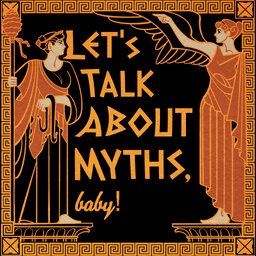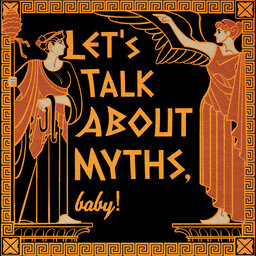Conversations: Beware of the Splash Zone! Gladiators in the Greek World w/ Alexandra Sills
Liv speaks with Alexandra Sills who studies spectacle! and, specifically: when Gladiators went to Greece... They talk mythologizing gladiatorial games, adapting things (splash zone!) and even, the evidence for women fighting in games. Read more from Alexandra at Bad Ancient and Working Classicists. Help keep LTAMB going by subscribing to Liv's Patreon for bonus content!
CW/TW: far too many Greek myths involve assault. Given it's fiction, and typically involves gods and/or monsters, I'm not as deferential as I would be were I referencing the real thing.
Attributions and licensing information for music used in the podcast can be found here: mythsbaby.com/sources-attributions.
 Let's Talk About Myths, Baby! Greek & Roman Mythology Retold
Let's Talk About Myths, Baby! Greek & Roman Mythology Retold


